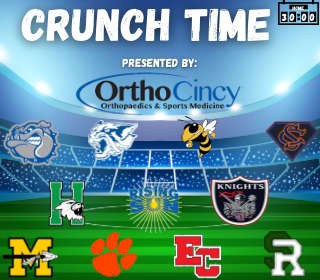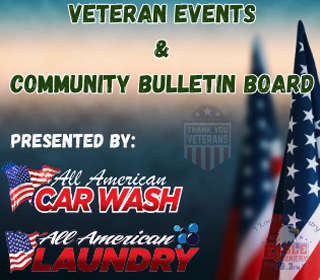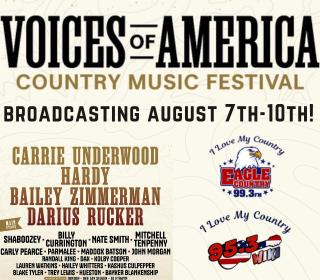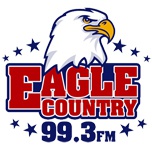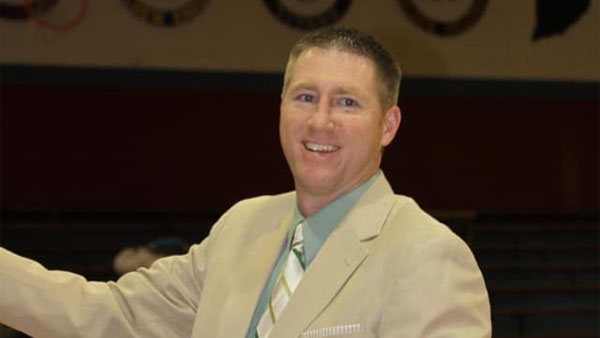By Mike Perleberg
A bird's eye view of downtown Lawrenceburg. Photo by Messer Construction. (Lawrenceburg, Ind.) – Those leading the effort to revitalize downtown Lawrenceburg believe that affordable and plentiful liquor licenses could give a downtown renaissance a much better shot. And those coveted licenses, which typically auction off at prices between $25,000 and $50,000, could soon be plentiful and much more affordable inside an area encompassing several blocks of the city’s downtown. Mayor Dennis Carr hired national downtown consultants Hyett Palma to study and identify opportunities for bringing more people and businesses downtown. In October, Doyle Hyett and Dolores Palma returned a report with one recommendation that stood out a bit more than the others: to take advantage of a little-known Indiana law that allows unlimited liquor licenses in a riverfront area designated as a cultural district. What’s more enticing is that the law allows each of those licenses to be awarded for as little as $1,000 each per year. The licenses would be non-transferrable. The Lawrenceburg Downtown Action Committee was appointed by Carr to begin carrying out the downtown action agenda last November. The proposal to establish a Downtown Cultural and Entertainment District is currently before the Lawrenceburg Redevelopment Commission. If it passes that board, it will head to Lawrenceburg City Council for final approval. “We anticipate the district being in place by the end of March,” says Tom Palmer, the action committee's chairman. The district would span from the Ohio River levee northwest to just north of Center Street, and from Mary Street northeast to Hollywood Casino Lawrenceburg. Combined with thousands of people visiting the new Lawrenceburg Event Center and DoubleTreet by Hilton hotel each month, the committee is expecting the district to become instantly more appealing to business owners, primarily restauranteurs, shops, and boutiques. Businesses already operating downtown – such as Beebs & Bubs Ameri-Café and the planned Firehouse Grill – are onboard, according to Palmer. “We’ve talked to the businesses. Every business is in support of it. We haven’t heard anything negative,” Palmer says. Although the liquor licenses would be affordable and unlimited, the Downtown Action Committee won’t be looking to attract several sticky-floored bars and night clubs. Family-oriented restaurants will be the primary target. Other projects are also being tackled by the Lawrenceburg Downtown Committee. Discussions have included a program to provide businesses financial assistance in purchasing hanging blade signs, and placing rooftop lighting lining the tops of buildings along Walnut, High, Vine, and Short streets. Longer-term projects could focus on taking advantage of the city’s riverfront views by bringing improvements to the levee such as a park, marina, or amphitheater. South Bend District Has Succeeded In Short Time In preparing to establish a downtown cultural and entertainment district, Lawrenceburg’s committee looked toward the City of South Bend’s utilization of the state legislation as an example. The northern Indiana city established the Municipal Riverfront Development District in 2012, says Downtown South Bend, Inc. executive director Aaron Perri. The area along the St. Joseph River became more appealing almost overnight with the city offering those $1,000 liquor licenses to businesses that would meet its criteria. “It’s been a positive experience. I think the most important part is that the local process is well defined,” Perri says. The growth within the district was faster than first anticipated. Since the district formation in 2012, 40 new businesses have opened – 28 of them in 2013 alone. Seven restaurants have been issued the deeply-discounted liquor permits since 2012, with three more pending. Those non-chain restaurants range from Asian fusion to a whiskey bar to a Cajun café to a brew pub. The new businesses have created 280 jobs as of today, Perri says. When the three other restaurants open the number could reach 400. Though the liquor licenses are unlimited, Downtown South Bend is particular about what type of establishments it allows in the district. “We weren’t looking to recruit smoky bars. There’s nothing wrong with those locations, but we were looking for more arts-type organizations, cultural-type places, restaurants,” Perri says. “We put rules into place that the focus of the establishment must be arts, dining, or culture as opposed to a purely alcohol consumption experience,” Perri explains. Downtown South Bend considers liquor licenses just a small part of the puzzle to bringing more people downtown. Perri says the downtown area has taken steps with culture, arts, parking, a restaurant alliance, and housing to capitalize on the urban living movement. RELATED STORIES: Downtown Action Agenda Highlights Casino, Ohio River Opportunities
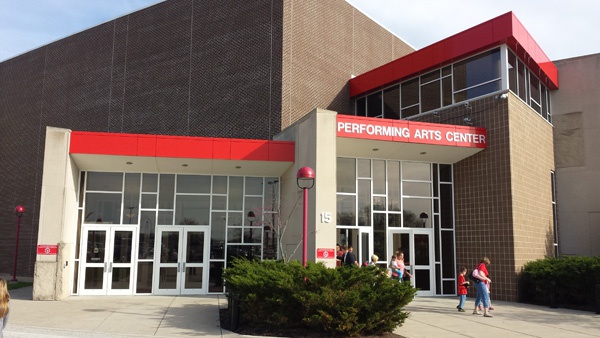 East Central HS Celebrates Record-Breaking Achievements of the Class of 2025
East Central HS Celebrates Record-Breaking Achievements of the Class of 2025
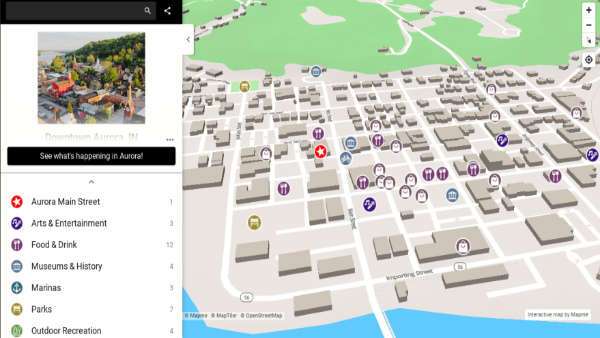 New Southeast Indiana Interactive Maps Now Available
New Southeast Indiana Interactive Maps Now Available
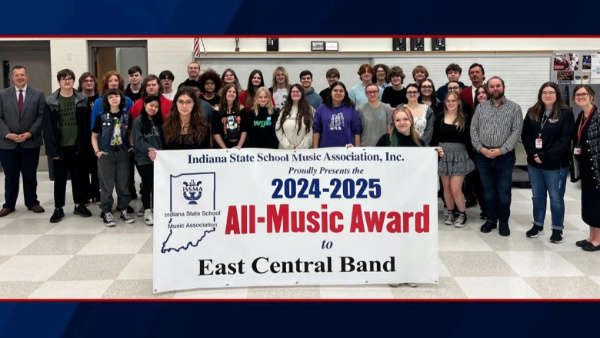 East Central HS Band Recognized with All-Music Award
East Central HS Band Recognized with All-Music Award
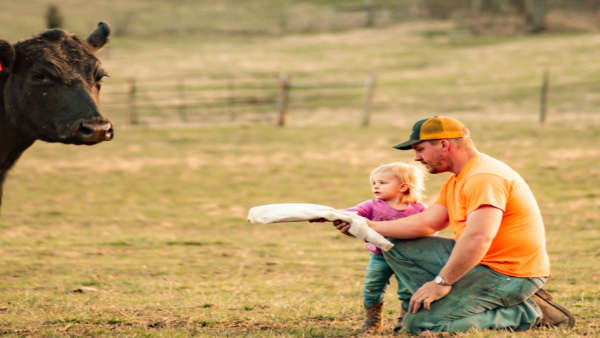 Highlight Your Photography Talents with the Indiana Agriculture Photo Contest
Highlight Your Photography Talents with the Indiana Agriculture Photo Contest
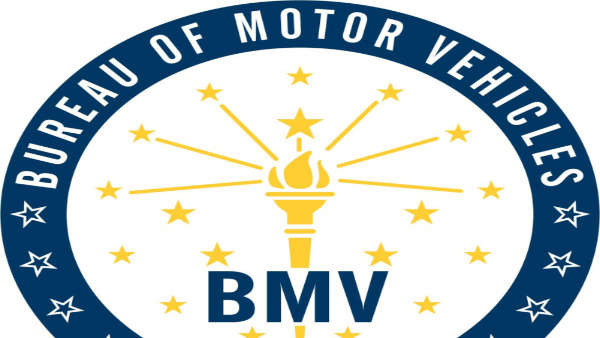 Public Hearing Scheduled to Discuss Proposed Closure of Versailles BMV
Public Hearing Scheduled to Discuss Proposed Closure of Versailles BMV
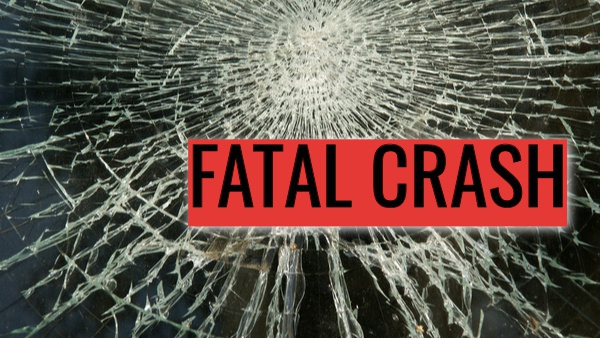 Jennings County Man Killed in Morning Crash
Jennings County Man Killed in Morning Crash
